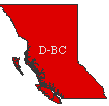mileslunn
Junior Chimp
    
Posts: 5,837


|
 |
« Reply #1 on: January 08, 2021, 05:54:28 PM » |
|
For comparing 2017 to 2019, I think there were a number of reasons for shift.
In 2017, May ran a gawd awful campaign while because no one expected Labour to win, many voted Labour more as a check against Tories and if people actually realized how well Labour would do, they wouldn't have voted for them. In addition you had two things happen in 2017. Much of the red wall was uneasy with Corbyn and he may have won most but underperformed. A lot were ready to jump Tories, but disastrous campaign led to them reluctantly staying Labour so all Corbyn did was hold back the inevitable. By same token, he was able to excite a lot of younger voters who tend to have much more negative views of Tories. For millennials, last decade has been terrible and fact home ownership by 30 which was once the norm and now only a dream is a big reason millennials voted heavily Labour. Home ownership vs. renter is a big predictor and millennials are much less likely to be home owners than people in past their generation. London also is growing and many traditional Tory areas that went Labour weren't so much of Tories switching to Labour but more new voters going heavily Labour. Most of those seats have fairly young and diverse populations. I believe Putney is one of the youngest constituencies thus why flipped in 2019.
In 2019, fear of Corbyn actually winning and fact he was even more radical while Johnson avoided same stupid mistakes allowed him to win all the red wall seats which May would have won if election had been two weeks earlier. Red wall seats aren't permanently lost, but with Tories taking on a more populist approach and being less a posh party while Labour being more your middle class college educated urban type party vs. blue collar, they are becoming more competitive. Despite that, of the shift that happened, majority were not Labour to Tory. Turnout fell and most who stayed home were Labour voters not Tory so that alone accounted for a lot of the loss. Liberal Democrat gains came more from Labour than Tory voters while Brexit party ironically hurt Labour more than Tories. A lot who voted Brexit party were leavers who loathed the Tories so didn't want another referendum or found Corbyn too left wing, but could not Tory. Areas like Welsh Valleys, Barnsley, Doncaster, and Sunderland were Brexit party's best area and unlike areas that flipped, those are rock solid Labour areas that voted over 60% leave.
Since then, Tories actually haven't lost that much in polls. Most of Labour's gains has come from Liberal Democrat voters as well as those who stayed home and new voters. Yes some in Red Wall have swung back, but more have not than have. While Starmer might win most red wall seats back, they would be by single digit margins and the ones that are mostly rural and swung hardest like Basseltaw and Bishop Auckland would still go Tory. Most red wall seats that would swing back are largely smaller urban or suburban while rural are likely lost for good. If Labour wins, it will be by gaining many traditional urban and suburban Tory seats like Chipping Barnet, Finchley and Golder's Green, Wycombe, and Rushcliffe which will cancel out rural red wall like Basseltaw and Bishop Auckland. More urban red wall like Leigh, Redcar, mixed like Workington are ones likely to swing back. In fact recent MRP generally showed most red wall seats with population densities above 1,000 people per square mile would flip back while most under that would stay Tory.
|

